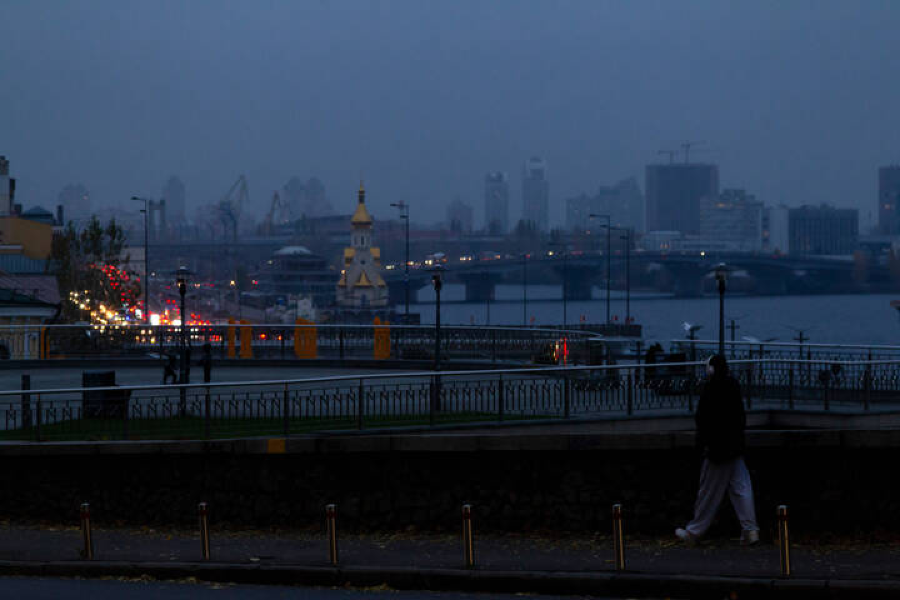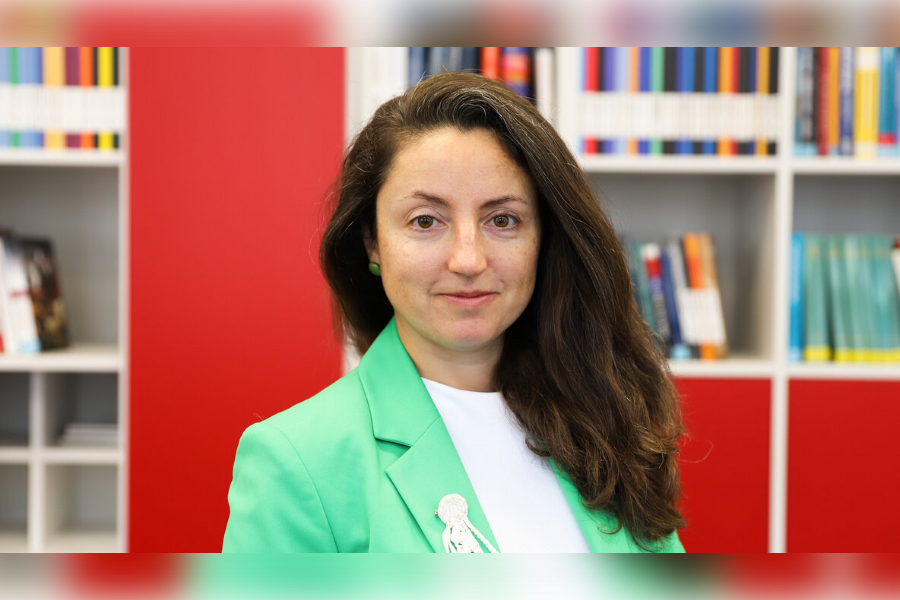KIUrious
Energoatom – A Sign That Ukraine’s Anti-Corruption Institutions Are Working
A recent corruption scandal at the state-owned energy company Energoatom has sparked debate in Ukraine. Oleksandra Keudel explains what the case reveals about anti-corruption reforms and democracy in wartime Ukraine.
Russian strikes on Ukraine’s energy infrastructure have caused blackouts in Kyiv, 24 October 2025. Ukraine’s anti-corruption institutions are working — yet amid the blackouts, the scandal feels especially painful.
Energoatom is a state-owned energy company. What structural weaknesses in the management of such enterprises does this case expose?
Energoatom was corporatized as one of Ukraine’s major state-owned enterprises (SOEs). Corporatization means restructuring SOEs so that independent Supervisory Boards are introduced as a key mechanism of control. The Boards are designed to strengthen oversight over enterprise management and reduce political leverage, while the enterprises remain publicly owned.
This case illustrates a common issue with creating independent oversight bodies: procedural actions, such as administrative decisions and restricted access to information, can undermine the independence of the Supervisory Boards. So the ability to control the enterprise depends on the cooperation of the company’s management.
At Energoatom, wartime secrecy was introduced due to the strategic importance, making it unclear whether the Supervisory Board had any opportunity to scrutinize management. Moreover, the Energy Ministry of Ukraine still retained substantial influence over the company in procedural terms: it took so long to sign contracts with Supervisory Board members, that one of the selected members resigned. Furthermore, the government overstepped its mandate when it simply released the Advisory Board.
How have the recent revelations affected perceptions of Zelenskyi’s leadership domestically and internationally?
The revelations, of course, put a shadow on Zelenskyi’s personal reputation. But, more dangerously, Russia has already launched its social media bots to create an environment of despair and a sense of uselessness of defending Ukraine domestically because of elite’s corruption. At the same time, active Ukrainians express their satisfaction on social media with the revelations, as it gives them hope that justice will be served.
Internationally, traditional opponents of Ukraine in the EU, such as Hungary, will likely instrumentalize this case to reduce support for Ukraine and, especially, undermine the opening of EU integration negotiations. Strategically, however, the EU sees support for Ukraine as a matter of its security, so I do not expect a significant change in overall EU-Ukraine defence cooperation – which is at the moment the most critical strand.
What does the scandal show about the balance between political loyalty and institutional oversight in Ukraine’s wartime governance?
The fact that the independent National Anti-Corruption Bureau of Ukraine (NABU) uncovered a significant scheme potentially involving high-profile individuals is telling. It suggests that political loyalties are not the sole determining factor in wartime Ukraine.
Moreover, this case demonstrates that democracy can function despite martial law. First, citizens took to the streets in the summer of 2025 to protect the independence of NABU, and the parliament and the president backed off a controversial law under public pressure. Second, the two ministers entangled in the alleged corruption, Energy Minister Svitlana Hrynchuk and Justice Minister Herman Halushchenko, have been dismissed. Two other individuals entangled in the uncovered corruption scheme and who were allegedly close to the president, Tymur Mindich and Oleksandr Tsukerman, have received personal sanctions that include asset freezing and a ban on business opportunities.
At the same time, it remains unclear whether and to what extent those responsible for the uncovered scheme will be held accountable, as new details emerge almost in real-time that may indicate evasion of responsibility. What we see is that the fight for democracy and public integrity in Ukraine continues, although the war, martial law, and pressures from vested interests make it a very challenging endeavor.
In the summer, attempts were made to undermine the independence of Ukraine’s anti-corruption bodies — now these bodies are the ones who uncovered the case. What do the recent events indicate about the current state of anti-corruption efforts in Ukraine?
Building institutions with public integrity in Western Europe took centuries and numerous bloody wars. For a long time, it was not the rule of law but practices we would now call corruption that dominated state–society transactions in today’s developed democracies.
Wars have been a traditional source of enrichment for elites. Hence, from this perspective, there is nothing special in this case, although, considering the blackouts, it is especially hurtful on an emotional level. What is notable is the existence of independent anti-corruption institutions that investigate these matters, and society, which, despite the strain of war, exerts pressure on Ukraine’s leadership.
Expert: Dr Oleksandra Keudel, is an Associate Professor and Director of the Center for Democratic Resilience at the Kyiv School of Economics and a UNET Fellow at the Centre for East European and international Studies (ZOiS). She holds a PhD in Political Science from Freie Universität
Berlin. Her work focuses on societal resilience, democratic governance, and
Ukraine’s political development.

Interview: Belinda Nüssel, Competence Network Interdisciplinary Ukrainian Studies (KIU) Frankfurt (Oder) – Berlin, Science Communication Officer